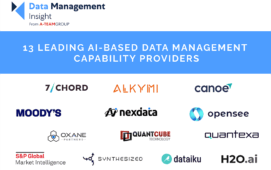Data management specialist element 22 has set in motion an open source project designed to develop a conceptual data model for the financial services industry that could lead to standard data schemas and help firms avoid reinvention of data models when addressing new system builds.
The so-called ?mod (fimod) Open Source Project is a response to element22 client and industry interest in open source data and messaging models that can be accessed immediately and used and customised easily to form the basis of systems development.
Element22 is pushing the project forward with the initial contribution of a conceptual model for legal entity identifier (LEI) data that is intended to help firms that are consolidating legal entity data and beginning to implement the requirements of the global LEI system.
This first release of ?mod was developed by a team including Ken Price, who left the role of CEO at Avox, a company he co-founded, towards the end of last year, and a number of industry experts from firms including element22 and Dataset IO. Element22 is also working on a second contribution to the project that will be a model for instrument reference data and is due for release mid-year, ahead, perhaps, of conceptual models for transaction and position data.
Predrag Dizdarevic, managing partner at element22, explains: “Every new project starts modelling data almost from scratch, assuming nothing within the firm or industry has been done previously. ?mod is an attempt to both standardise data models in the financial services industry and provide instantly usable data models in the form of messaging or dataset schemas.”
Like all open-source projects, Dizdarevic acknowledges that ?mod will only evolve and expand if its data models are used and contributions are made to their development, but he suggests early responses to the project from financial firms and data vendors are encouraging. He notes that ?mod aligns with the open source work of the Enterprise Data Management Council’s Financial Industry Business Ontology programme by adding practical models that can be used for data and messaging schemas. Dizdarevic also plans to discuss with Bloomberg the alignment of ?mod with the data vendor’s open symbology, another element of the industry’s open source movement.
Considering the potential of ?mod, Dizdarevic says: “We started with the LEI as it has become a business requirement. It is not only a driver for the open source project, but also a trigger as it will cause consolidation of all legal entity data. We don’t expect open source data models to replace existing models that are often proprietary, but it is now possible for new systems developments to use and populate the open source models. Version 1 of ?mod was designed for the LEI, but it could be used for other requirements. One firm asked if it could support data required by the Foreign Account Tax Compliance Act (Fatca). We checked that and have been able to verify that it can support Fatca.”
As well as being used by financial firms, element22 hopes data vendors will adopt products of the ?mod project, making it easier to exchange data between counterparties. Commercially, element22 takes the view that if open source models are offered, people will use them, leaving the company to help users customise them, but ‘no more than that’ says Dizdarevic, concluding: “The industry needs a solution like this. It will be a benefit when we engage with clients that need to define data models as we will be able to tap into standard data schema and not reinvent them every time.”
Subscribe to our newsletter



